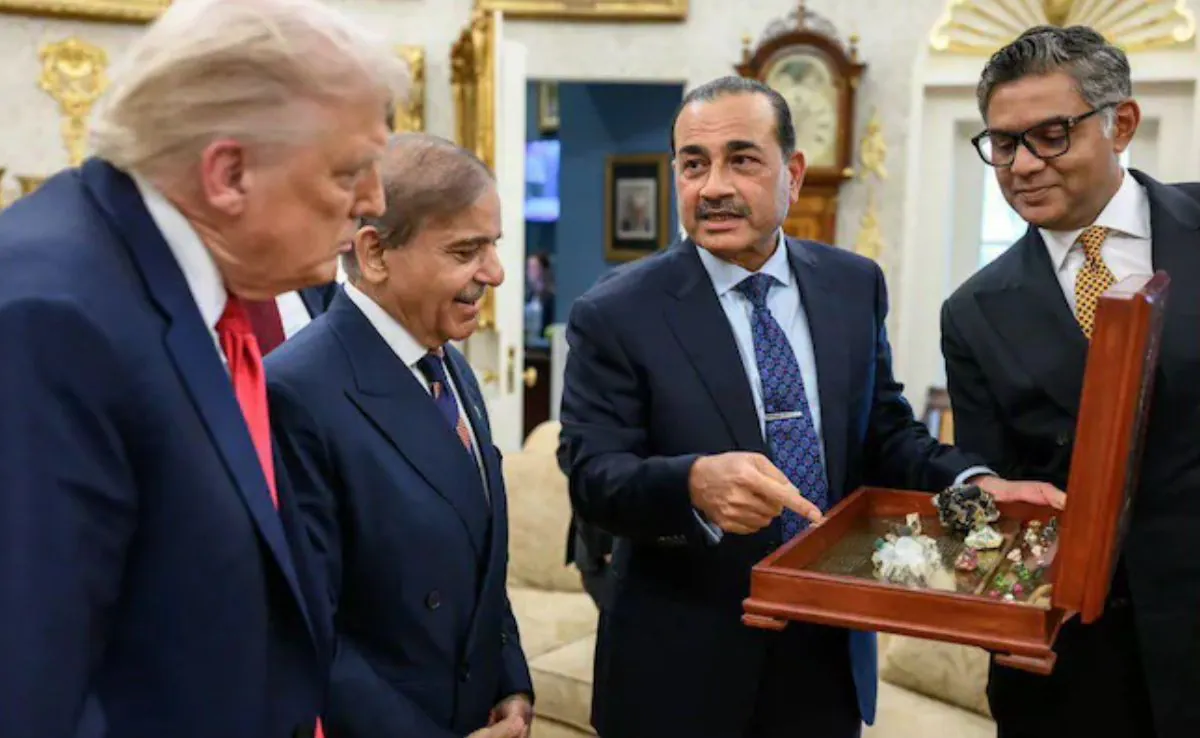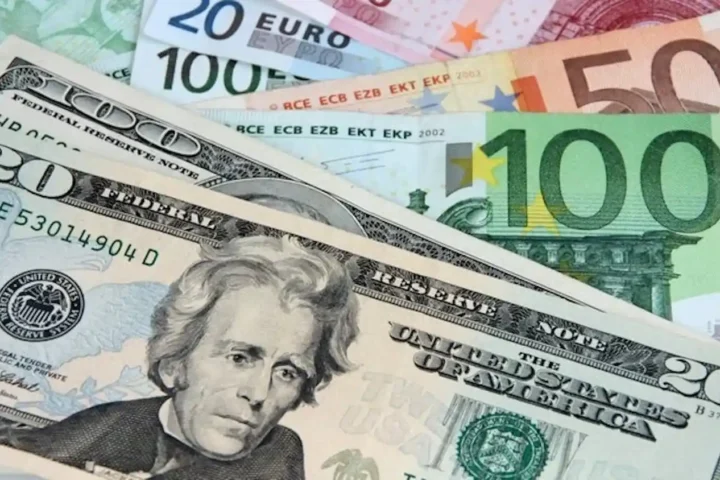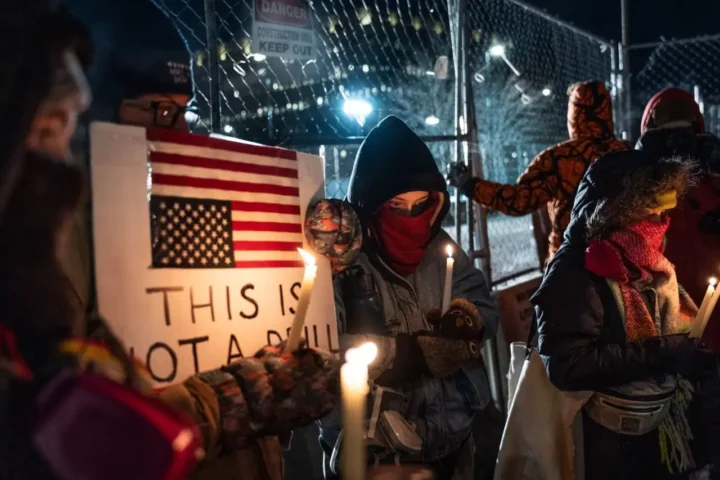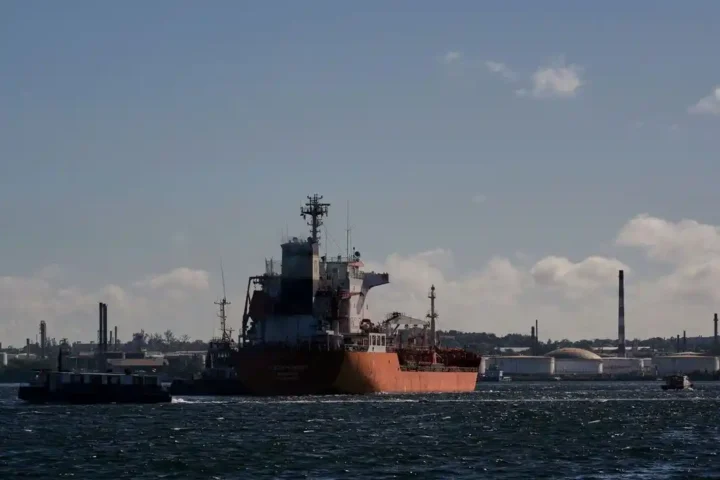Washington is once again tempted by an old illusion: that Pakistan can act as a dependable partner in South Asia. President Donald Trump, fresh from boasting of brokering peace after the latest flare-up with India, is being wooed with gifts, flattery, and promises from Islamabad’s generals. It’s a familiar script—and one that rarely ends well for the United States.
Pakistan’s latest offer sounds seductive: a shiny new billion-dollar port at Pasni on the Arabian Sea, packaged with access to rare earths and critical minerals. That port would sit barely 70 miles from China’s Gwadar installation and a hundred miles from Iran—an ideal site if Washington wants to watch both rivals. The pitch is clever. Pakistan’s army chief, Field Marshal Asim Munir, knows how to sell. Telling Trump exactly what he wants to hear.
Munir’s entourage arrived in Washington this summer armed with talking points and symbolic gifts. After meetings at the White House, viral photos showed him handing Trump a box of rare earths, touting Pakistan’s mineral wealth and its potential role in reducing America’s dependence on China. The proposal for Pasni came next: a U.S.-financed deep-water civilian port and rail links into Balochistan’s mineral belt, labeled a “commercial venture” rather than a strategic installation.
But nothing Islamabad offers comes free of strings. Pakistan’s real purpose is to pull Washington away from its deepening defense partnership with India—a relationship that underpins America’s wider Indo-Pacific strategy. Each time Washington succumbs to the nostalgia of a “special” role for Pakistan, it ends up eroding trust in the one democratic partner that actually shares its long-term interests.
History Repeats—Badly
Every generation of U.S. policymakers seems to rediscover Pakistan as a supposed gateway to Asia’s security challenges, only to relearn the same hard lesson. Eisenhower armed Pakistan to fight communism; those same weapons were soon turned on India in 1965. Nixon’s “tilt” towards Pakistan in 1971 embarrassed Washington when it backed a military regime that lost East Pakistan. Reagan’s partnership with General Zia turned Pakistan into a safe house for militant networks the U.S. later spent two decades fighting.
Even after 9/11, when President George W. Bush declared Pakistan a “major non-NATO ally,” the country sheltered Taliban leaders and facilitated their return after America’s withdrawal from Afghanistan. Calling Islamabad a “counterterrorism partner” has always been an act of optimism unmatched by evidence.
Today, Trump and his foreign policy aides see Pakistan through a transactional lens—access to minerals, a counterbalance to China’s Belt and Road, maybe even a “Nobel moment” for brokering peace in Kashmir. But this romanticism ignores reality. Pakistan is not leaving China’s orbit; it is deepening it. The China-Pakistan Economic Corridor remains Beijing’s flagship investment, with Gwadar serving as a potential dual-use naval facility. Any American money funneled into Pasni risks underwriting Beijing’s own strategic backyard.
More dangerously, this flirtation undercuts trust with India just as the U.S.-India partnership faces strain over tariffs and technology access. If New Delhi begins to doubt Washington’s reliability, the Quad’s deterrence value will sink. America doesn’t need chaos in the only Asian democracy capable of balancing China.
Better Lessons from the Past
The logic of American strategy in Asia is simple: align with states that share interests, values, and stability. Pakistan offers none of these. It is a nuclear-armed nation with a military running much of its civilian government, reliant on IMF bailouts and Saudi cash. The generals in Rawalpindi are masters of playing everyone—China, the U.S., and the Gulf—for short-term gain.
What looks like a “new chapter” in U.S.-Pakistan relations is really another short story in a long anthology of disappointment. Strategic patience, not impulsive dealmaking, is what Washington needs in South Asia. America’s best bet isn’t a transactional ally in Pakistan—it’s a democratic partner in India, whose long-term alignment will define the balance of power in the Indo-Pacific.
The Trump administration may think it’s cutting a smart deal in Balochistan. History suggests it’s walking into the same trap, with the same results.











